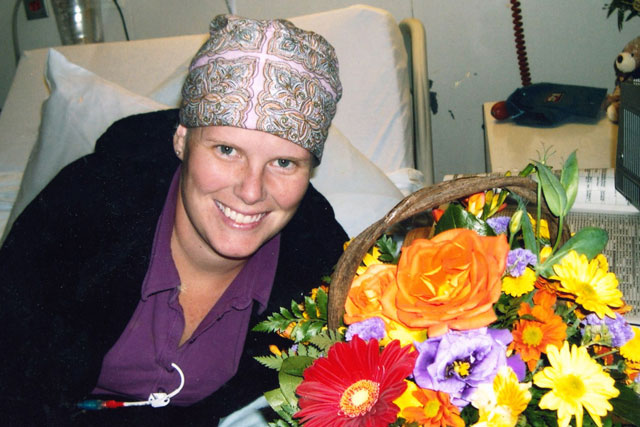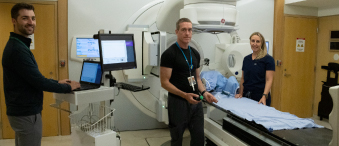Published: June 2019
Heather Harris was driving her fiancé to a golf tournament one morning in 2001 when her right foot went numb. By the end of the day, the numbness had spread up the entire right side of her body.
The then-24-year-old Thunder Bay resident had an MRI, which showed signs of multiple sclerosis (MS). The numbness was her first MS attack.
MS is a devastating disease that occurs when the immune system—which protects against foreign organisms such as viruses or bacteria—mistakenly attacks the body’s own central nervous system, which includes the brain, spinal cord, and optic nerve.

Heather met with neurologist and MS specialist Dr. Mark Freedman just a few weeks before her wedding. Heather’s disease was progressing rapidly. Dr. Freedman told her she would be in a wheelchair within five years.
Dr. Freedman and hematologist and scientist Dr. Harold Atkins were leading a world-first clinical trial, investigating whether patients with early, aggressive MS would benefit if their immune system was wiped out with high-dose chemotherapy and then regenerated with blood stem cells.
The stem cell treatment seemed her only hope. Heather and her husband moved to Ottawa for a year while she took part in the trial. She had the stem cell transplant in November 2006.
“It’s now 12 years since my stem cell transplant. I really feel like I’m cured,” said Heather who has no symptoms of the disease. She works full-time as a school principal, and is back to camping, skiing, running and driving a manual shift car.
Heather and her husband wanted to have a baby. With the help of in vitro fertilization, Heather had a baby girl in 2016. She said her little Zoe is the second miracle in her life.
In June 2016, Drs. Freedman and Atkins published the results of their successful clinical trial in The Lancet, a top medical journal. To date, more than 50 MS patients, like Heather, from all over Canada have undergone this treatment, which eliminated all signs of damaging active brain inflammation.




